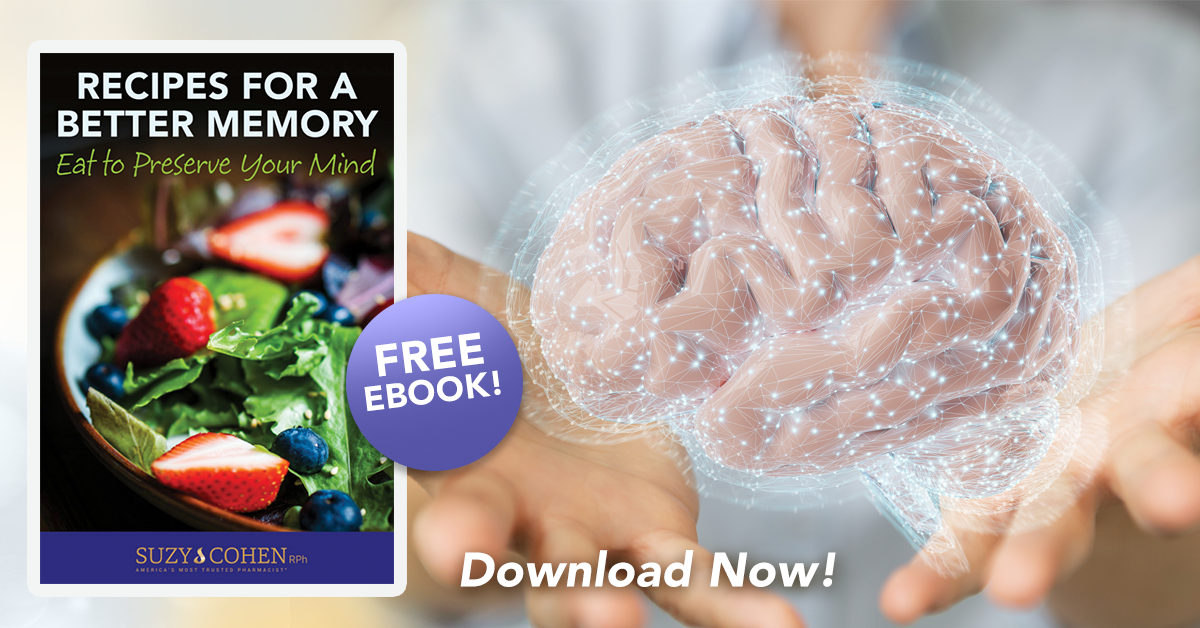What's On This Page?
ToggleOne of the most powerful attributes of essential oils like pure lavender essential oil, Roman chamomile oil, and rosehip oil, is that they contain powerful esters with constituents in them. They are wonderful for relaxation, easing anxiety and depression, and enhancing sleep. A couple of more relaxing essential oils to consider are vetiver and a specialty oil called copaiba, which is is similar to black pepper. It’s okay to experiment.
Some of you might be wondering why a pharmacist is recommending essential oils to help sleep when we have many excellent sleeping pills from the pharmacy. I’m just a pharmacist who loves natural remedies! It’s okay to combine essential oils via a diffuser, even if you take medication.
Indeed, as conventional medicine has continued to unravel the secrets of plant-based compounds, we, as a nation, have come to understand the power of natural ingredients and how they can support our healing journey. What weakens the case for essential oils is that there are no commercials on TV, they are not handed to you by a white coat professional, and they don’t even cost a lot! (It’s strange but true, there are a subset of people who associate the price paid for treatment with its efficacy.)
Since essential oils can set you back $10 to $100 dollars depending on the quality, purity, and type of oil desired, it’s nothing compared to an injection that is priced at $500 to $2000 per month.
So there isn’t as much perceived benefit with essential oils; they come from plants! Again, a subset of people (perhaps you even know someone like this) do not think that plant-based medicine is worth a hoot. But for eons and centuries, it’s all we used on Earth; there was no such thing as a prescription drug in the prior century. Prescription drugs are all man-made, and I spent 22 years dispensing them as part of my career. The irony is that many, many drugs are derived from plants, and in the laboratory, they have a component added or deleted from their original molecular structure. After that’s completed, a prescription is born, and so is a patent.
I’ve been on an interesting journey to say the least. Take a look at the plants in the graphic below that can be distilled to garner an essential oil. There are many others, this is just to get you to realize that some of your favorite spices (for example, cinnamon, peppermint or vanilla) and favorite flowers (jasmine or lavender) were actually strong medicine long before pharmacies were created!
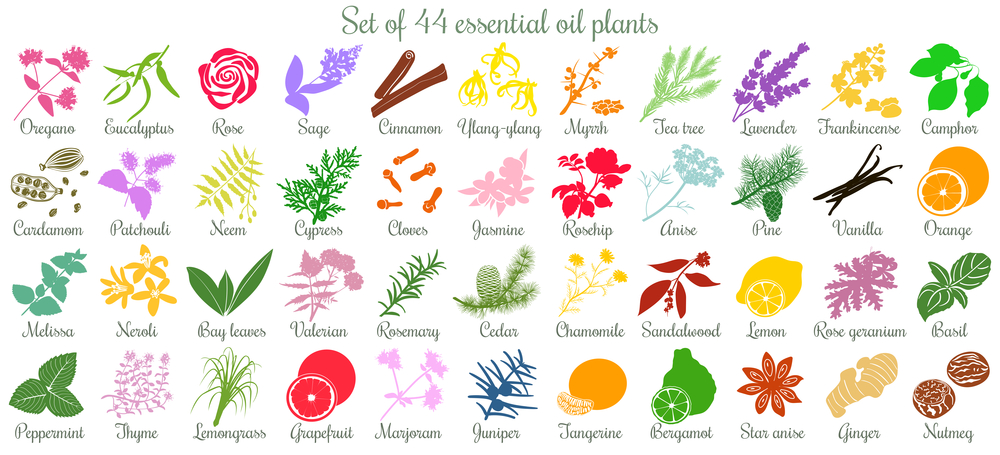
With essential oils, doctors have discovered a dependable, effective way to:
1. Relax patients before surgeries, relieving pre-operative anxiety.
2. Bring relief to persons with depressive disorders and anxiety.
3. Inhibit the GABA(A) binding receptor in the Central Nervous System, inducing relaxation.
4. Enhance sleep quality, fight milder cases of insomnia, and lessen sleep disturbances, especially in females and younger participants.
5. Overcome insomnia and enhance well-being, especially in older persons.
In one fascinating, recent study, researchers found that just sniffing jasmine from the Gardenia (jasminoides) plant is as effective as commonly prescribed barbiturates for inducing sleep and a sense of internal calm and peace.
And the great thing about incorporating pure essential oils into your life is that they don’t pose adverse health risks or side effects such as daytime drowsiness, morning hangovers or tolerance withdrawal. Also, unlike OTC sleep aids, they don’t induce anticholinergic side effects such as constipation, blurry vision and dry mouth.
Is snoring problematic? Usually this occurs due to hormonal changes or weight gain. There are essential oils that might help by enhancing your sleep. These work by opening airways and possibly alleviating sleep apnea and lessening the snoring. I’m thinking of eucalyptus, marjoram, thyme or peppermint essential oil in your bedside diffuser, or put a few drops of an essential oil(s) in your hands, then inhale. Those appear to be helpful.
Some of them work because they enter via the limbic system, and act as a GABA agonist, promoting relaxation, bliss, good dreams, and a feeling of well-being. A friend of a friend says he put pure thyme essential oil on his big toes at night and it helped him snore less! It’s crazy but he swears by it!
Purchasing Pure, Organic, and Safe Oils
When it comes to using essential oils, the most important thing is to use organic essential oils. Only 100% pure organic oils are all anyone needs to be inhaling because many essential oils today contain undisclosed carrier oils, alcohol and fragrances. One fragrance can have hundreds of chemicals in it, most of which are hormone-disrupting. Be very choosy about the brand of oil you use, especially if you’re going to be taking them internally (or diffusing them as aromatherapy). If you get impure oils that have very harsh chemicals in them, you do your body a disservice.
In fact, you want to opt for oils with a triple purity test:
~ 100% pure (the ingredient list should show only 100% pure oil—and this should be its only ingredient, period).
~ 100% organic (look for the USDA Certified Organic designation) or even better, a GC/MS paper. GC is for gas chromatography and MS is for mass spectrometry. While these are not the be all, end all, this is a testing method for essential oils that determine the fingerprint of the compound. It doesn’t tell you everything, but it’s better than nothing.
~ It’s nice to buy indigenous products. This is just an example, France is known for growing lavender and some people consider buying this particular essential oil if it was sourced from that country. I’m not in agreement with this, but I’m sharing it with you because some people feel very strongly about it.
~ 100% GMO free
How to Use an Essential Oil to Enhance Sleep
The easiest way to get essential oils into your blood stream within seconds is to inhale them. Pour a few drops onto the palms of your hands, and rub them together. Then put your palms up against your nose and take a deep breath. Do this 3 to 5 times. You can rub your palms over your wrists or the bottoms of your feet too.
My favorite way to use essential oils at night is in a diffuser. You can add a couple of drops, just as you would water to a humidifier, allowing the relaxing scents to waft over you and your loved ones, enhancing mood and sleep.
If the bottle has a supplement facts box on the back, it most likely can be taken internally in juice, water, tea or maybe you want to pour a couple of drops into a capsule.
I buy unscented lotions and creams so that I can add my own pure essentials oils to the bottle. Then you apply the product to your legs, arms, chest or wherever.
Another way that I enjoy my essential oils is by putting a combination of a few into my little travel spritz bottle, and add pure water. I can spray my face, the room, the pillow, the air space, or even a bug bite if it has the right combination!
Add some essential oils to the bath tub, and really prepare yourself for a better night of sleep. Time the essential oils properly, in other words don’t use a sleep blend (see below for 4 options) at 8pm if you don’t want to sleep until 10 or 11pm. Timing is everything with essential oils, just like it is with medication. There is a phenomenon known as “chronotherapy” which takes into account your body’s circadian rhythm and you may be interested in that topic. I talk about when to take certain labs, and when you should take your vitamins and medications.
For more on that, please read, Chronotherapy: Timing of These 7 Medications Matters.
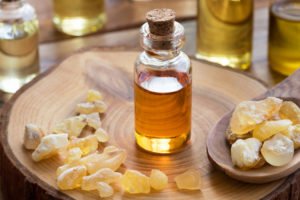
Recipe of Essential Oils to Sleep Like a Baby
-
Lavender and Francincense
If there’s one, number one proven oil (and herb) to relax the body and mind, ease depressive symptoms, and enhance sleep – it’s lavender. Combine lavender essential oils with any number of other oils for great sleep. You could mix it with vetiver, frankincense or calendula. My favorite is lavender combined with sandalwood (equal mix) plus 1 drop of Balsam or Siberian fir, all in my little diffuser by the bed. You could also try valerian essential oil, if you can handle the aroma. Full disclosure, it’s not my favorite! But if you want to try that, add 3 to 4 drops of lavender and valerian and enjoy enhanced sleep, good dreams, a greater sense of well-being, and relaxation.
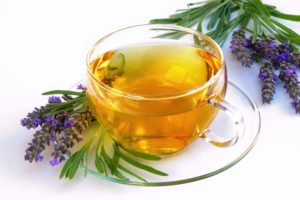
2. Chamomile Blend
This is one of my favorite blends for enhanced sleep and relaxation. Depending on the size of your diffuser, you may want to use fewer drops, but either way, keep the ratio the same:
- 4 drops clary sage essential oil
- 4 drops ylang-ylang essential oil
- 4 drops of Roman chamomile
- 2 drops wild orange (or bergamot)
Clary sage, YLANG-YLANG, and Roman chamomile are wonderful ingredients for promoting relaxation, and curbing anxiety. Clary sage is especially effective for helping women balance hormones, including fat-storing cortisol, which gives us that big belly during times of stress.
Ylang-ylang has highly researched, highly proven powers for enhancing well-being. It’s considered an anti-depressive oil, and a strong euphoric. In studies of women, ylang-ylang has been shown not only to promote relaxation but enhance feelings of self-esteem as well. So, what a win-win-win kind of essential oil!
3. Knock Out Blend
When sleep seems the farthest thing from your mind—and you’ve been in front of that computer all day, with all that circadian-disrupting light pouring into your eyeballs, this is the blend I really recommend.
Try a blend of one to three drops apiece of frankincense essential oil, bergamot, and sandalwood essential oils.
In a study of cancer patients published in 2016, researchers found 64% reported improved sleep using frankincense, bergamot, and sandalwood essential oils.
Plus, frankincense has amazing powers as an anti-inflammatory essential oil.
4. Serenity Blend
This is a single formula that conveniently blends various different essential oils, all intended to induce calm. It is made by a popular essential oil company called Doterra (I am not a representative), and combines lavender, cedarwood, ho wood Leaf, ylang-ylang, marjoram, Roman chamomile flower, vetiver, vanilla and Hawaiian sandalwood. This can help promote relaxation and a restful sleeping environment by reducing feelings of tension and strong emotions. Like the others above, these essential oils work in different ways, but mainly by reducing excitotoxic compounds, and improving GABA.
Regardless of what blend you choose, using natural plant extracts like essential oils are a wonderful way to promote sleep in our non-stop stressful world. Instead of filling your home with synthetic perfumes that have dozens if not hundreds of strange artificial chemicals (to make the fragrance) use natural plant-derived fragrances and fill your body up, and your home, with clean scents known to support our health and wellness.
Artificial chemicals may smell nice to an untrained nose, but they still are not good for you.
They stick to your cells like super gooey glue. They have the ability to disrupt estrogen hormones, as well as other metabolic processes. In contrast, pure oils that get distilled from a plant are clean, healthy and some even reduce your risk of serious chronic (or incurable) illnesses. If nothing else, a few of them can help promote relaxation and deeper sleep.
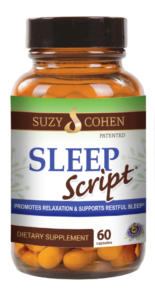
Honrable Mention: Sleep Script®
This is a dietary supplement. It is not an essential oil blend. It contains various herbs and amino acids including L-theanine and passionflower, as well as 5-HTP and Lemon Balm. This product is so effective, so strong and unique that it is patented. It is one of my top sellers in my custom line of formulas! Check it out HERE.
CLICK LIKE to FOLLOW Suzy Cohen – Get Important Health Tips

Suzy Cohen, has been a licensed pharmacist for over 30 years and believes the best approach to chronic illness is a combination of natural medicine and conventional. She founded her own dietary supplement company specializing in custom-formulas, some of which have patents. With a special focus on functional medicine, thyroid health and drug nutrient depletion, Suzy is the author of several related books including Thyroid Healthy, Drug Muggers, Diabetes Without Drugs, and a nationally syndicated column.
